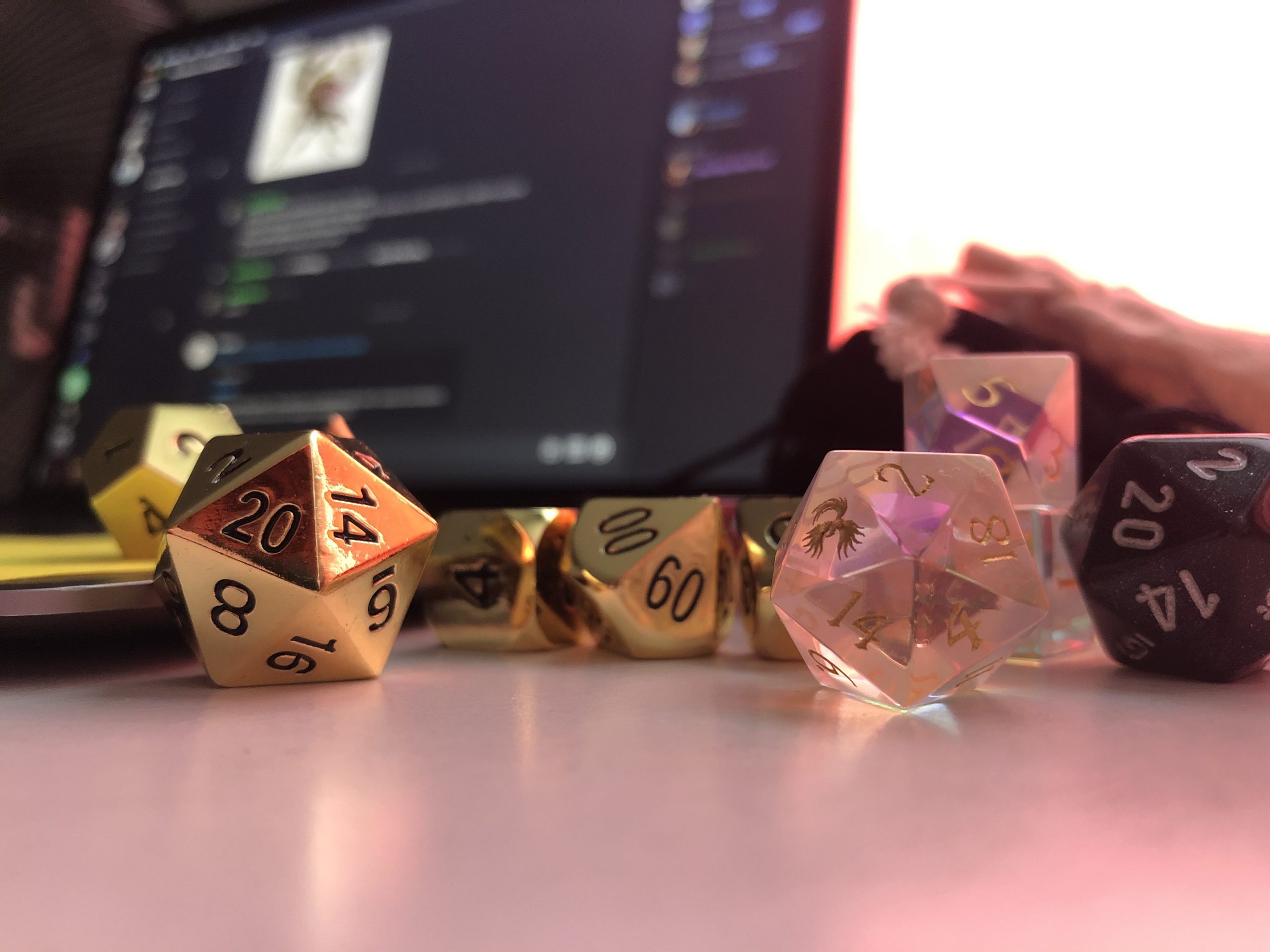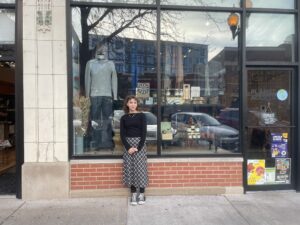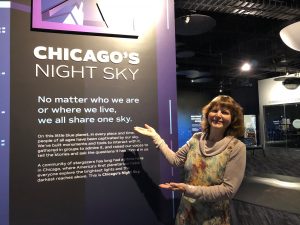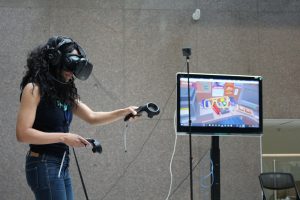As wind rolled through Grant Park last fall, several college students could be seen gathering rocks and sticks to weigh down their blankets and papers as they prepared to embark on a mystical journey through a landscape of their own making while depending on fate to lean in their favor. These young adventurers were preparing to play Dungeons and Dragons.
The live, in-person game—also referred to as D&D—is a collaborative roleplaying game designed for groups to engage in a story-telling process to solve problems put forth by the dungeon master, or DM. This game is built on working together in a close environment, usually with visual supplements like a map or figures that are shared by the group, and decisions are made by rolling dice.
However, like with other aspects of life, COVID-19 guidelines and mandates on both the state and federal levels have caused a change. Due to the strong discouragement of close contact and strong encouragement of masks, personal protective equipment and social distancing, COVID-19 has affected how D&D can be played.
Mes Bogathy, 20, a Columbia College student residing in the South Loop, is a DM for their group and explained while the weather was warm they would go to Grant Park to play one of their campaigns.
A campaign is a specific story the DM is presenting at the moment; groups of the same players can play in many different campaigns.
Since the weather has become inclement, the group has moved indoors to player’s apartment. Bogathy’s group of four has put immense trust in one another to be in a confined space, without masks, for several hours at a time.
“We did a lot of learning about the world and the characters, and that’s what I look forward to every time,” Bogathy said in an interview during the fall semester.
However, being in person is not the only option for players looking to continue their campaigns.
Eric Rundgren, 23, a night security guard who lives in Itasca, Ill., plays with their group over Discord.
Discord is an online messaging platform that allows people to make their own chat rooms called servers. Each server is unique and can complete any purpose its creator desires.
Rundgren’s server is for her group to voice call together while they play their game. They utilize a tabletop simulator, or sim for short, on Steam to create their map and roll dice. Steam is a platform that allows users to store game data for safekeeping with minimal data consumption.
“D&D is part game, part story,” said Rundgren about her view of the game. “Most of it happens in your head. It’s a group storytelling effort.”
In June, the Dungeons & Dragons official website released information and resources to help encourage their players to maintain social distancing and stay safe.
These resources included their official rule book, links to free websites that store character and campaign information and links to free online communication platforms like Discord. The company also provided coloring pages and resources for families that were looking to entertain their children as lockdowns occurred.
“A lot of regular groups have been disrupted when people are used to playing role-playing games with a specific set of people,” said Brendon Riley, associate professor in the Communication Department at Columbia College Chicago and area chair of the Midwest Popular Culture Board and Board Game and Tabletop Game Area.
He studies popular culture and with the pandemic occurring, he noticed several developments regarding tabletop gaming.
“Because everybody’s home more, I think people have sought out and started using these digital implementations to set up new role-playing games and I know that some people are connecting with friends or other gamers from across the world,” Riley said.
Riley is also part of a group of people who have sought out digital implementations to game; he is currently several months into a game with several friends from across the U.S. spanning four different time zones.
“I think there are a lot of people among the older gaming community who would have thought online play was dumb, who wouldn’t have been willing to try online play and were forced to because of COVID, and I suspect that after that people will be much more willing to do online play,” Riley said about the long-lasting impact the pandemic might have on tabletop and roleplaying games like D&D. “I would not be surprised if we continue to see online role-playing groups continuing with a much higher level of participation even after we’re allowed to go back out in public.”
While the original intent of D&D and other in-person role-playing games was to physically bring people together in a new way that encouraged them to address problems in creative ways, COVID-19 changed that.
However, players are innovative and when push comes to shove, they will adapt.
“We get together and we grow stronger together,” Bogathy said. “Usually wearing elf ears and wizard hats, and that’s D&D.”













Be First to Comment